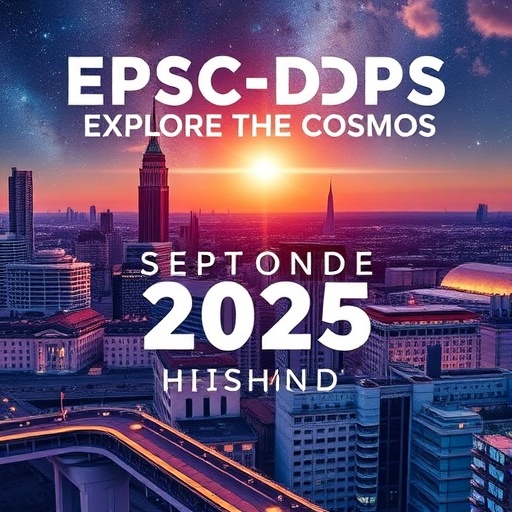The highly anticipated Europlanet Science Congress 2025, referred to as EPSC-DPS2025, promises to be a landmark event for the global planetary science community. Scheduled to take place from September 7 to September 12, 2025, at the iconic Finlandia Hall in Helsinki, Finland, this congress offers an exceptional platform for researchers, students, and enthusiasts to converge and share their discoveries. The collaboration with the American Astronomical Society’s Division of Planetary Science signifies a convergence of prestigious organizations, paving the way for a comprehensive exploration of planetary research and technology.
The scope of EPSC-DPS2025 is extensive, embracing a vast array of topics within the field of planetary science. With 74 scientific sessions planned, attendees can expect in-depth discussions on Solar System phenomena, exoplanetary discoveries, and interstellar research. This year’s congress aims to highlight the latest findings from spacecraft missions, ensuring that participants are kept abreast of cutting-edge advancements in the field. The presence of researchers from various countries enriches the event, allowing for a global exchange of ideas and perspectives.
One of the intriguing features of EPSC-DPS2025 is its focus on artificial intelligence and machine learning. As these technologies continue to shape numerous scientific disciplines, their application within planetary science is particularly exciting. This intersection of technology and research is expected to foster innovative approaches to data analysis, potentially leading to revolutionary findings in understanding planetary bodies and their characteristics.
The congress will also delve into planetary defense, addressing the critical need to protect Earth from potential extraterrestrial threats. Discussions will revolve around current strategies, international cooperation frameworks, and future missions designed to monitor and mitigate risks posed by near-Earth objects. With growing awareness of this subject matter, attendees can anticipate passionate talks from experts in the field.
Moreover, the emergence of life in our Solar System and beyond remains a profound area of inquiry. The congress will spotlight the latest research regarding astrobiology, including studies on extreme environments that may harbor life, as well as the implications of discovering biosignatures on exoplanets. This topic resonates with both scientists and the general public, emphasizing humanity’s enduring quest to understand our place in the universe.
The format of EPSC-DPS2025 will adapt to the needs of all participants, as it will be conducted as a fully hybrid meeting. This approach enables live virtual participation, ensuring inclusivity for those unable to attend in person. For a multitude of scientists, this format could facilitate broader engagement, allowing for diverse contributions that enhance the quality of discussions taking place.
The congress’s program will be enriched by keynotes from leading figures in planetary science, engaging debates, and vibrant community events designed to foster networking opportunities. The Europlanet Space Innovation Night (E-SPIN) will offer a unique platform for showcasing innovative ideas and promoting collaboration amongst attendees. This networking opportunity could also spur new projects, partnerships, and research initiatives that extend well beyond the event.
In recognition of the importance of media within scientific discourse, the EPSC-DPS2025 invites media representatives to attend the congress. Media registration is free, reflecting a commitment to transparency and public engagement. By providing access to press briefings and issuing notices on significant presentations, the congress ensures that important advancements in planetary science reach a wider audience, thereby enhancing public understanding and interest in this fascinating field.
The official website serves as a vital resource for potential attendees, offering extensive details regarding the sessions and presentation abstracts. Interested participants are encouraged to explore the program thoroughly and prepare for an engaging week of discovery and inspiration. Active engagement during the congress will be crucial as discussions unfold, creating a dynamic environment for idea exchange and collaborative endeavors.
As excitement builds leading up to EPSC-DPS2025, individuals across various fields of planetary science are poised to present their findings and contribute to the collective knowledge of the community. The anticipation of shared insights, breakthrough research, and collaborative opportunities reinforces the congress’s significance as a premier event in the planetary science calendar.
In conclusion, EPSC-DPS2025 stands as a pivotal moment for the planetary science community, offering a unique combination of innovative research, technological advancements, and collaborative engagement. The congress’s venue, Finlandia Hall, symbolizes this exciting confluence of discovery and scholarship, inviting participants to explore the mysteries of the cosmos together. As researchers and media representatives come together in Helsinki, the legacy of EPSC-DPS2025 will undoubtedly resonate for years to come.
Subject of Research: Planetary Science
Article Title: Exploring the Frontiers of Planetary Science at EPSC-DPS2025
News Publication Date: [Insert Date]
Web References: [Insert URL]
References: [Insert References]
Image Credits: Europlanet
Keywords
Planetary Science, EPSC-DPS2025, Finlandia Hall, Exoplanets, Planetary Defense, Artificial Intelligence, Machine Learning, Astrobiology, Scientific Collaboration, Hybrid Meetings, Europlanet, Research Innovations.




